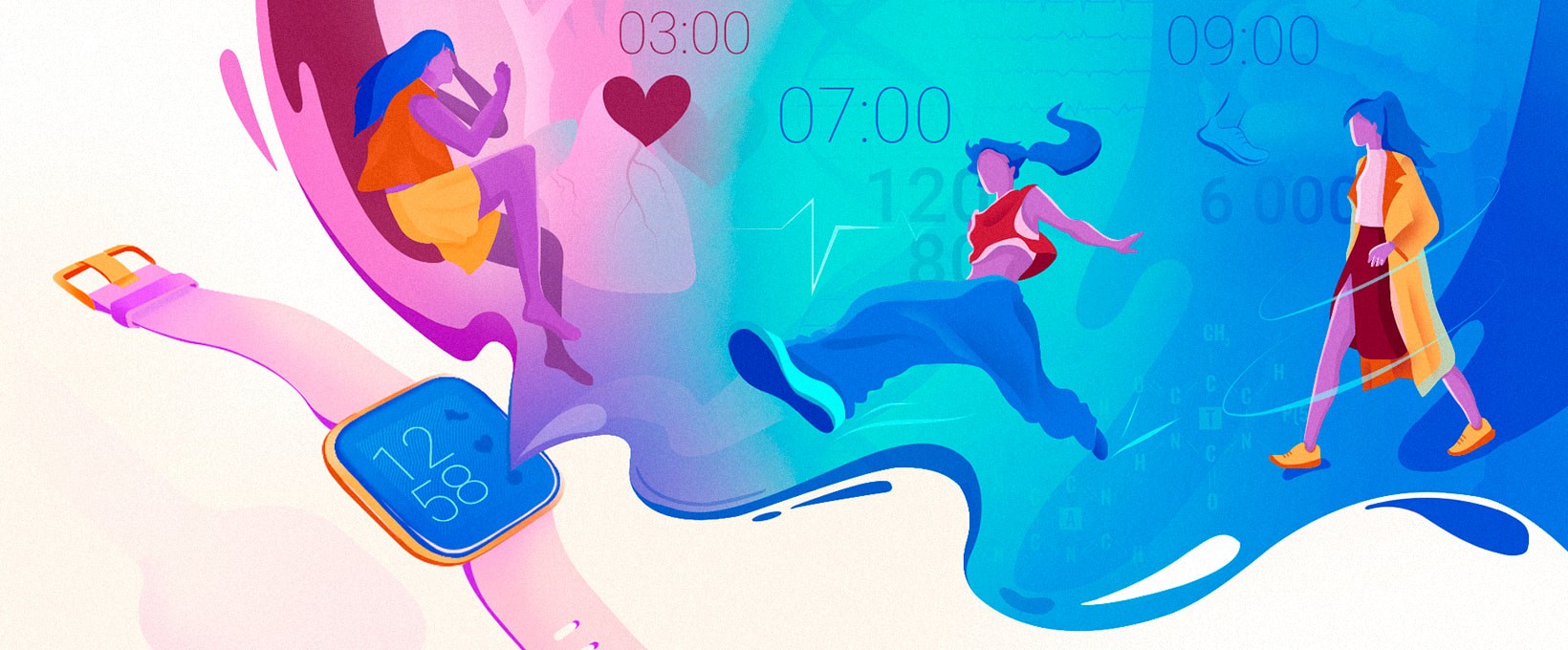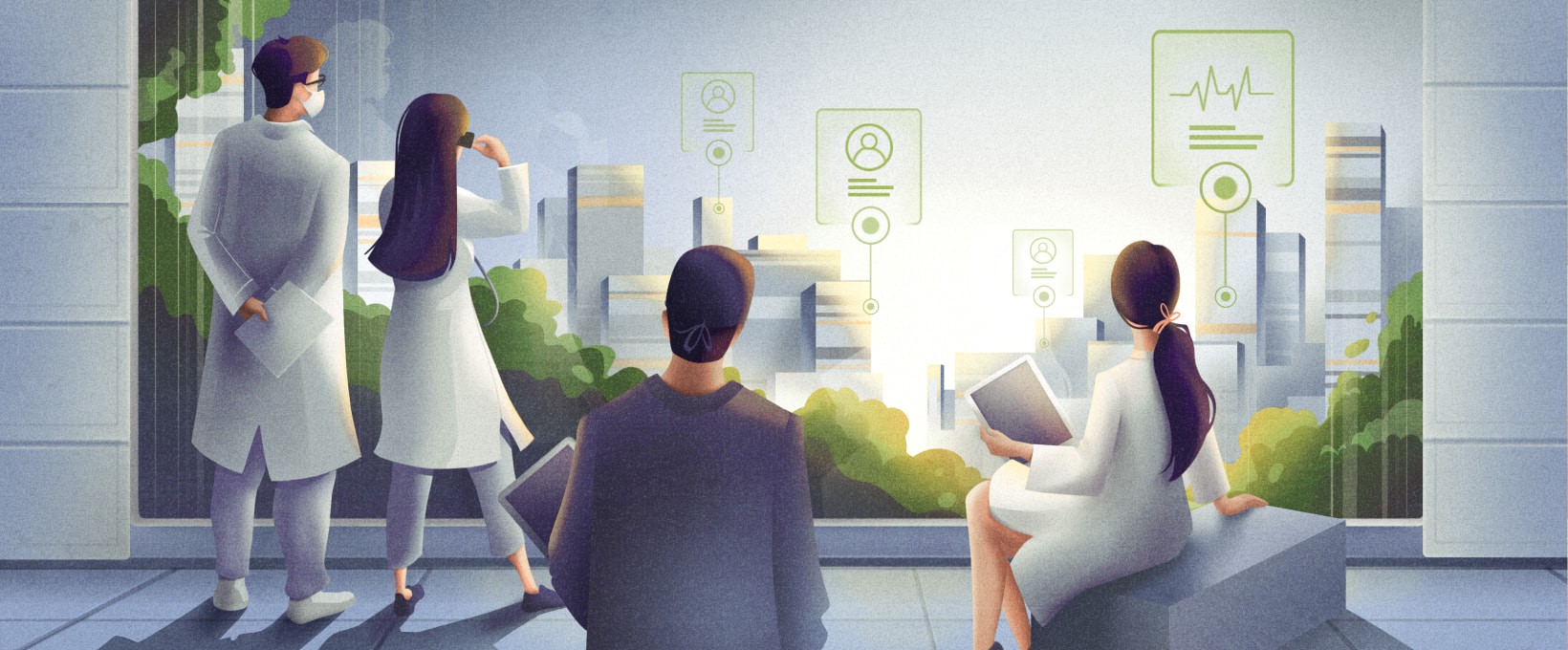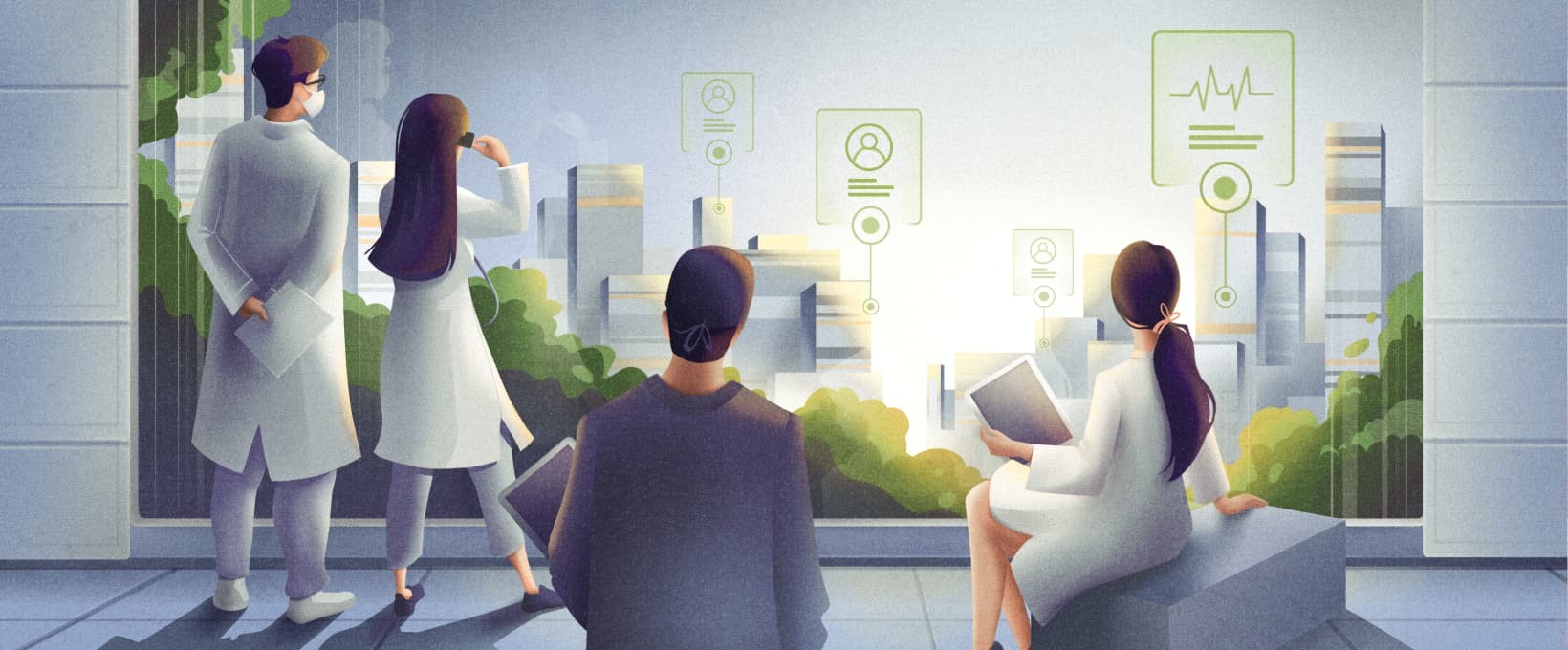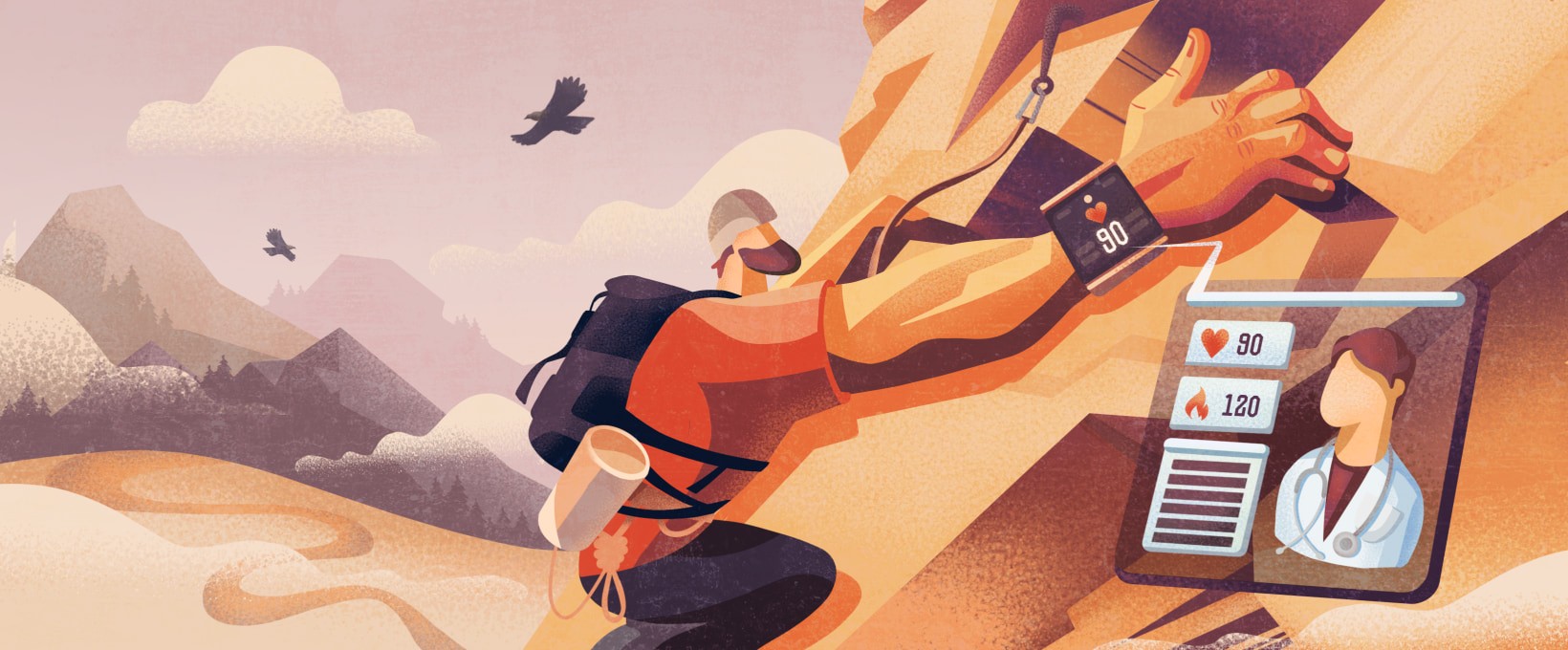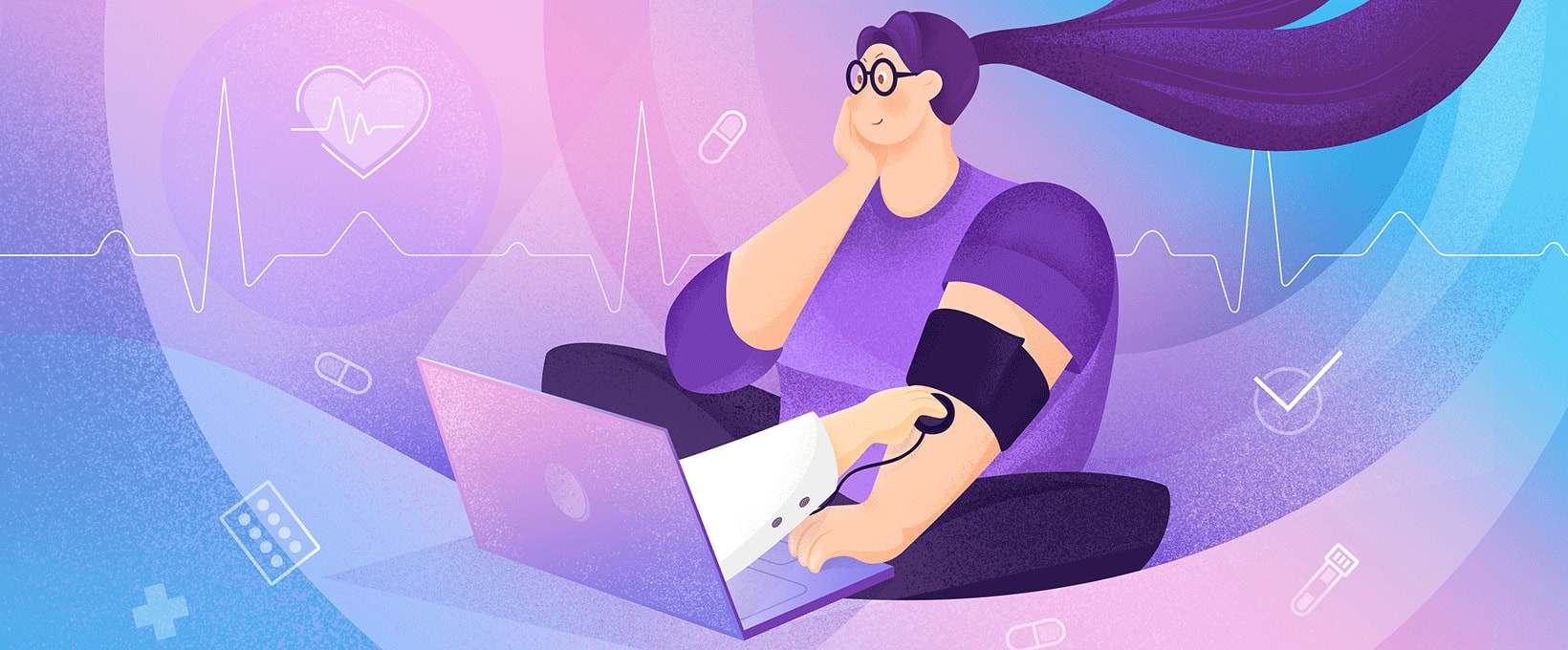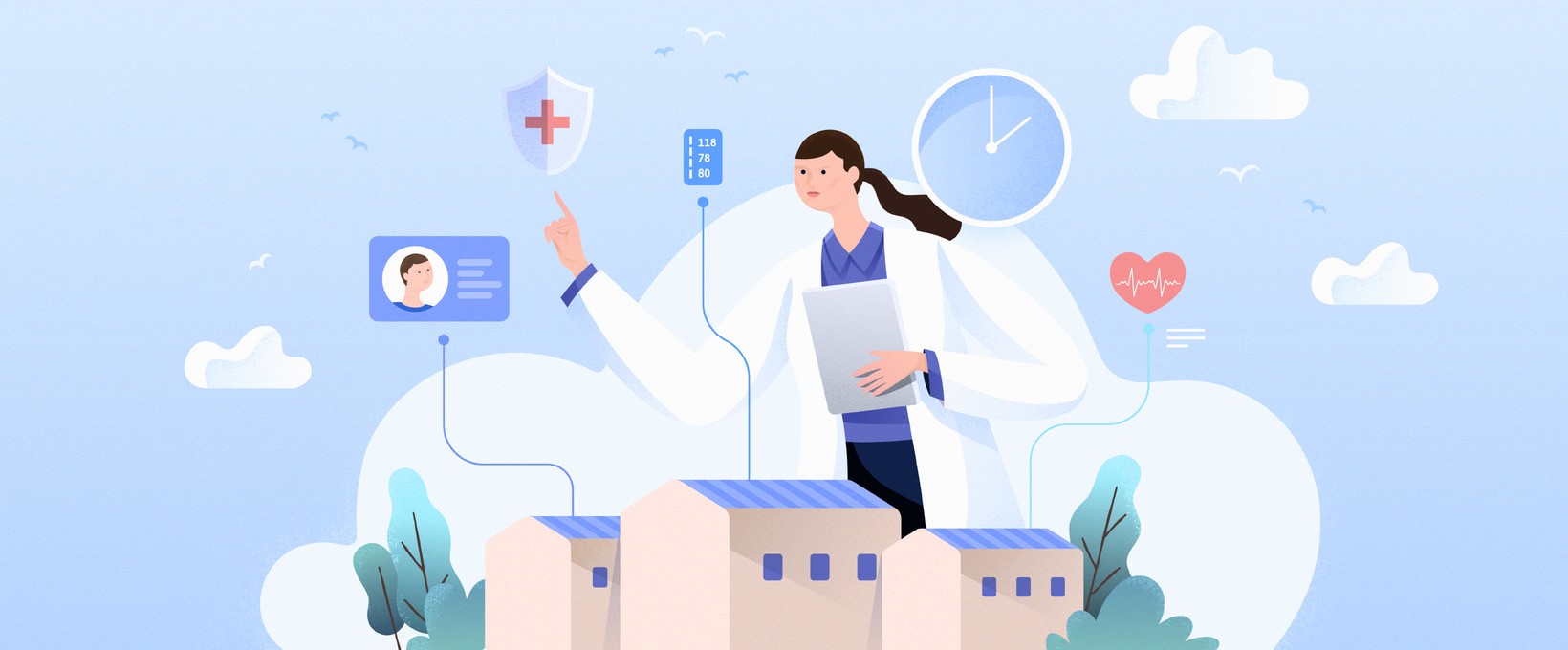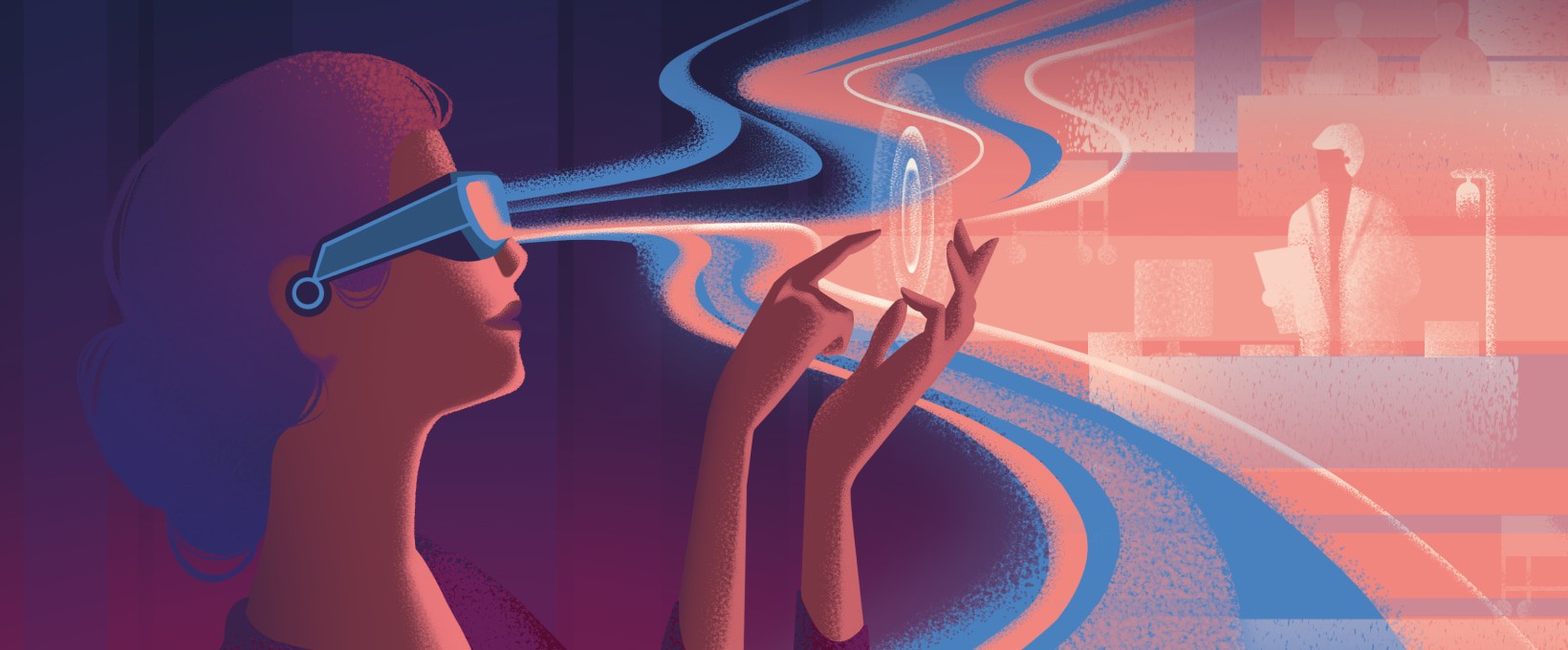- More specific data pertaining to mental health
- Want to create a mental health app? But what type to create?
- Reason to create a solution of those types: a total win-win
- How to develop mental health apps? Features to create
- Wrapping up. Choose Andersen
Vulnerability to mental health challenges and issues is a widely-spread problem nowadays. This is not without reason. The reminiscences of the COVID-19 pandemic, the ever-present likelihood of new medical threats, ongoing and potential large-scale military conflicts, costly economic uncertainties, and the never-ending flow of news contribute to it. Take a look at these figures: back in 2019, before all the aforementioned started or intensified, roughly 970 million individuals worldwide, or 1 out of every 8 people, had been grappling with a mental disorder. As the WHO puts it, anxiety and cases of depression were common conditions among those affected. The 2020s made matters much worse. As early as 2020, anxiety and depression rates started to skyrocket, showing 26% and 28% spikes respectively. In this situation, growing target audiences of users tend to resort to technology for support and maintaining their internal balance and well-being. This trend motivates companies to invest in this direction. Therefore, knowing how to create a mental health app is a question of major importance for HealthTech players.
More specific data pertaining to mental health
As a team focusing on mental health app development, we would suggest starting with statistics. First of all, there certainly exists a large target audience for mental health apps. For sure, more people are, first and foremost, concerned about their physical condition. However, the gap between the perceived significance of physical and mental aspects is not that big. In 2022, about 70% of survey participants from 34 countries confirmed they frequently or somewhat frequently contemplated their physical well-being. In contrast, approximately 58% of respondents expressed similar levels of consideration regarding their mental health.
Resorting to apps is a self-evident direction to go for those worried about their well-being in general and mental health in particular. Teams all over the world regularly create such electronic assistants, the best of which are in high demand.
In 2017, what we now look back upon as calmer days, the size of the global mHealth market was valued at almost $23 billion. Around 2025 it is projected to exceed $246 billion. This upward trend should not come as a surprise.
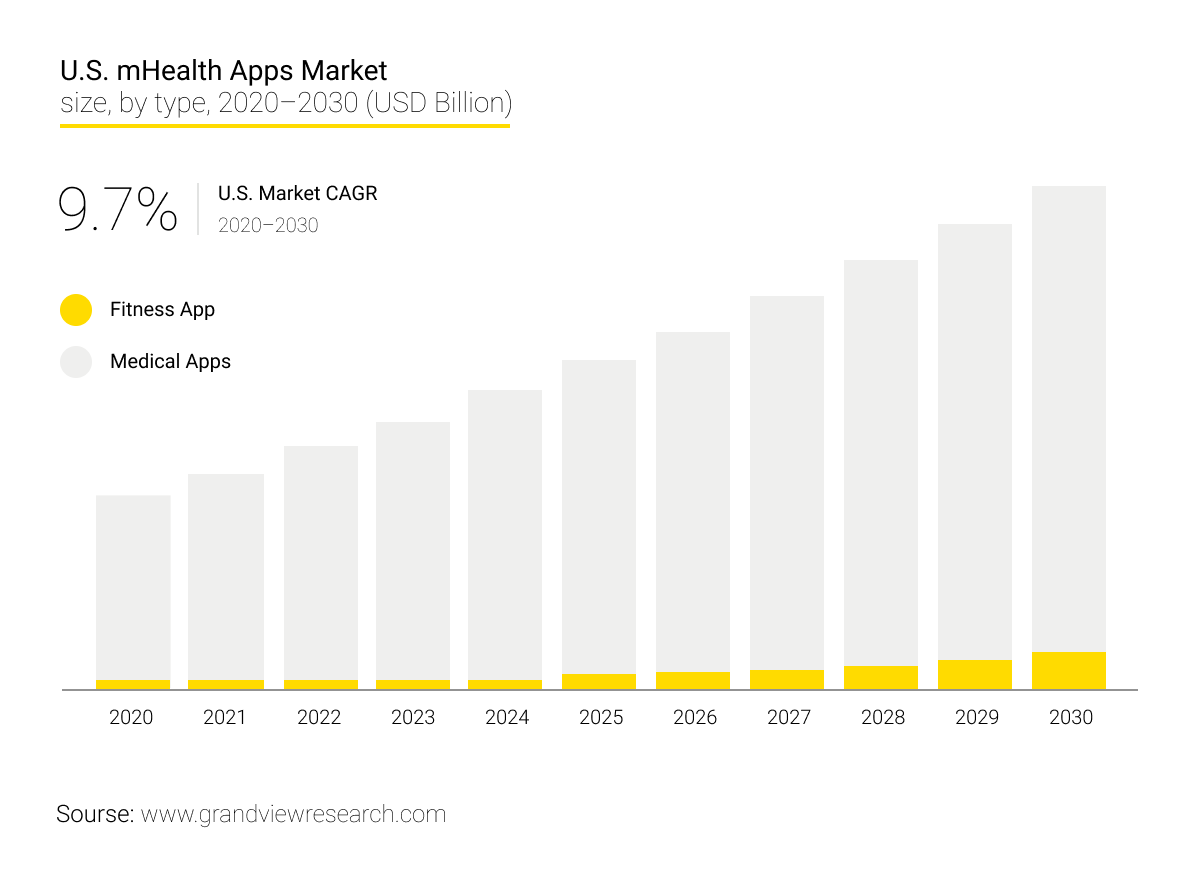
Even over a decade ago health professionals believed in apps. For instance, this 2013 survey showed:
- 93% of doctors expressed confidence in the ability of mobile health apps to enhance patient outcomes;
- Furthermore, 89% of them indicated their inclination to suggest such apps to their patients.
This 2015 study, focused on the UK NHS attitudes, revealed that:
- Nearly half (48%) of healthcare professionals planned to integrate mobile apps into their practice within the coming five years;
- 81% anticipated that these apps would enhance their understanding of patients' conditions;
- 65% of healthcare professionals were of the opinion that health apps would contribute to patient accountability for their health;
- Finally, 93% of end-users believed that mHealth tools could exert a positive impact on the quality of life.
Recent calamities, technology advancements, and greater affordability have resulted in a predictable boom.
An interesting fact: According to the Deloitte researches, studies indicate that mental health apps offer significant clinical benefits. Meta-analyses encompassing over 20 existing mobile alternatives trials reveal a notable reduction in depressive symptoms and improved self-management of depression.
Moreover, an analysis focusing on anxiety treatment apps demonstrates a decrease in anxiety symptoms post-usage, particularly when combined with not only face-to-face, but also internet-based therapies.
Want to create a mental health app? But what type to create?
Let’s assume your company intends to capitalize on this expansion and create a mental health app. But what type exactly?
Generally, there are three options to create:
- To create something for anxiety and depression management. We have already mentioned their global prevalence levels. These problems are faced by millions, indeed.
To help them, apps of this class encompass functionalities to evaluate end-users' present mental well-being, monitor their emotional state, and provide guidance on managing associated conditions. They might incorporate features for meditation, sleep tracking, and communication with either an AI-driven chatbot or a human therapist.
Meditation is a big thing for health industries nowadays. Throughout various cultural traditions and geographical locations, meditation has served as a longstanding time-tested method for emotional regulation. Demonstrating efficacy in tackling stress and its associated symptoms, meditation apps have gained widespread acceptance as tools for cultivating relaxation practices and nurturing self-compassion among users.
In 2022, the global market for meditation and mental wellness apps was valued at over $533 million. Projections indicate that, by 2028, revenues from worldwide users of meditation apps are expected to exceed $2.5 billion.
The niche is growing not only by winning new loyal users, but also by generating more revenue from each of them. During 2022, the average revenue per user (ARPU) for meditation tools surpassed $46. However, forecasts suggest that the global average spending per user is set to rise to $60 by the conclusion of 2027.
- To create something to overcome or at least control addiction. Alcohol, tobacco products, and substance abuse of other types also constitute a major challenge. In the US alone, as American Addiction Centers reported recently, almost 20 million Americans (aged 12+) had a substance use disorder.
To provide assistance, apps can offer to hold remote consultations with a specialist or schedule in-person visits. Also, they aid in self-regulating one’s addictive behaviors via capabilities for monitoring progress and analytics features. Another aspect to consider is incorporating gamification elements, such as the accumulation of virtual coins or other rewards for motivation.
This category also encompasses solutions designed to address eating disorders. These typically offer features such as calorie and weight tracking, meal planning calendars, and educational resources focused on promoting healthy nutrition habits.
- To create something for overall mental self-improvement. Be it about more physical exercise, mindfulness practices, or even anger control, apps can help here as well. They do so via functionalities for setting goals, scheduling opportunities, access to coaching sessions, betterment monitoring, as well as integration with educational platforms.
Reason to create a solution of those types: a total win-win
The idea to create a mental health app is not only lucrative, it is also extremely beneficial for all parties involved.
End-users of solutions one creates improve their well-being in the following fashions:
- Getting assistance in a way that is more affordable and available (than ever) to a greater amount of people;
- Those who hesitate or are not sure whether they should visit a therapist take the first steps by using tech solutions;
- They are able to stay anonymous when getting insights on personally sensitive or controversial topics;
- Apps give convenient access to services 24/7 and from any spot on Earth that boasts decent internet coverage.
Medical facilities relying on software you create enhance their performance in three ways:
- Mental health apps serve as beneficial complements to live therapy sessions by facilitating comprehensive analysis of patients' conditions;
- These solutions simplify and automate various daily tasks, including appointment scheduling, report generation, and secure storage of results;
- Moreover, they gather data on various conditions, enabling healthcare institutions to utilize them in research endeavors, consequently enhancing the quality of their services.
In addition to revenues, software development companies seize such opportunities as:
- Enhancing their image by helping people cope with socially significant disorders;
- Broadening their expertise in delivering state-of-the-art software, abiding by the latest health technologies and domain-specific trends.
How to develop mental health apps? Features to create
In case you are pondering on how to build a healthcare app for mental issues, i.e. a really modern tool that will attract an audience and generate profit, consider embedding it with key useful functionalities.
How to develop mental health apps. Create for end-users
End-users seeking help for their various mental conditions typically need the features described below:
#1. Create registration and profile setup
Upon initial entry, end-users are prompted to provide personal and health details, complete questionnaires, upload test results and medical opinions, and select a subscription tier (if applicable). Due to the sensitive nature of data transfer and storage, robust multi-factor authentication, including biometric login, is imperative nowadays.
#2. Create health monitoring
This functionality encompasses various tools, such as note-taking diaries, vital sign collection, and real-time tracking of involved indicators. Integration of features like voice recognition, drawing tools, and gamification elements can enhance user engagement and experience.
#3. Create interactive communication
An adequate platform should offer advanced capabilities for real-time interactions with coaches and therapists, facilitating chats and video sessions. End-users are to be enabled to schedule, archive, and supplement sessions with attachments for comprehensive support.
#4. Create prompt notifications and alerts
Seamless push notifications serve to remind end-users of scheduled events and payments, encourage adherence to healthy routines, and foster continued engagement with the app.
#5. Create integration with external systems
Integration with electronic health records, TeleHealth solutions, payment gateways, vital sign monitoring tools, scheduling packages, social media platforms, and geolocation services enhances the app's utility and connectivity.
#6. Create community engagement and mental health education resources
Many contemporary users expect to be able to partake in forums and group chats anonymously, sharing personal experiences and receiving support. Additionally, access to educational articles, podcasts, and videos, supplemented by AI-driven recommendation engines tailored to end-user profiles, enriches the learning experience.
How to develop mental health apps. Create for healthcare workers and coaches
Professionals are also important as a target audience of your project. To match their expectations, create the following:
#7. Create expert-level profiles
Within their profiles, experts seek the capability to detail their areas of expertise and credentials, establish working schedules, and define rates and fees.
#8. Create analytical and mental health monitoring resources
Your software should empower specialists to access patient data in real-time, facilitating the collection, organization, storage, and analysis of this information.
#9. Create seamless payment system integration
Facilitate seamless payment processing for specialists, allowing them to accept payments in multiple currencies directly to their eWallets or through banking apps.
Wrapping up. Choose Andersen
Andersen's cutting-edge healthcare software solutions elevate global living standards, while empowering healthcare providers with top-tier, seamlessly integrated software. With 18 years of experience behind us, we've successfully delivered numerous projects, leveraging advanced technology and deep industry knowledge.
In terms of mental health, our IT company of skilled and experienced experts can create:
- Electronic Health Records (EHRs) streamlining clinical workflows through specialized templates, tailored coding, integrated billing systems, and prescription drug monitoring programs;
- Patient portals and apps designed for daily self-care routines offer guidance, mood and emotion tracking, and the ability to maintain consistent well-being journals;
- Software solutions for behavioral specialists, therapists, psychologists, and other mental health professionals that adhere to HIPAA and GDPR regulations;
- Online patient platforms facilitating connections between individuals and mental health providers, incorporating peer-to-peer communication and group therapy features;
- Creation of specialized smartphone apps for momentary assessment, financial tracking, alcohol consumption management, and additional functionalities;
- Specialized AI chatbots providing mental health support, online counseling, and cognitive behavioral therapy services.
Reach out to us for unparalleled custom solutions that drive your business's digital evolution. Let’s create something together!




